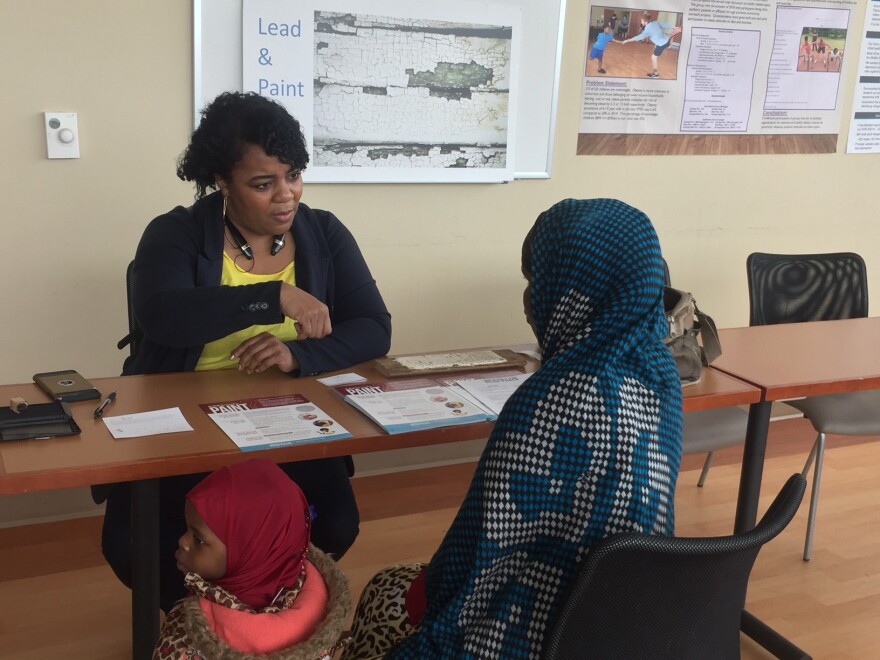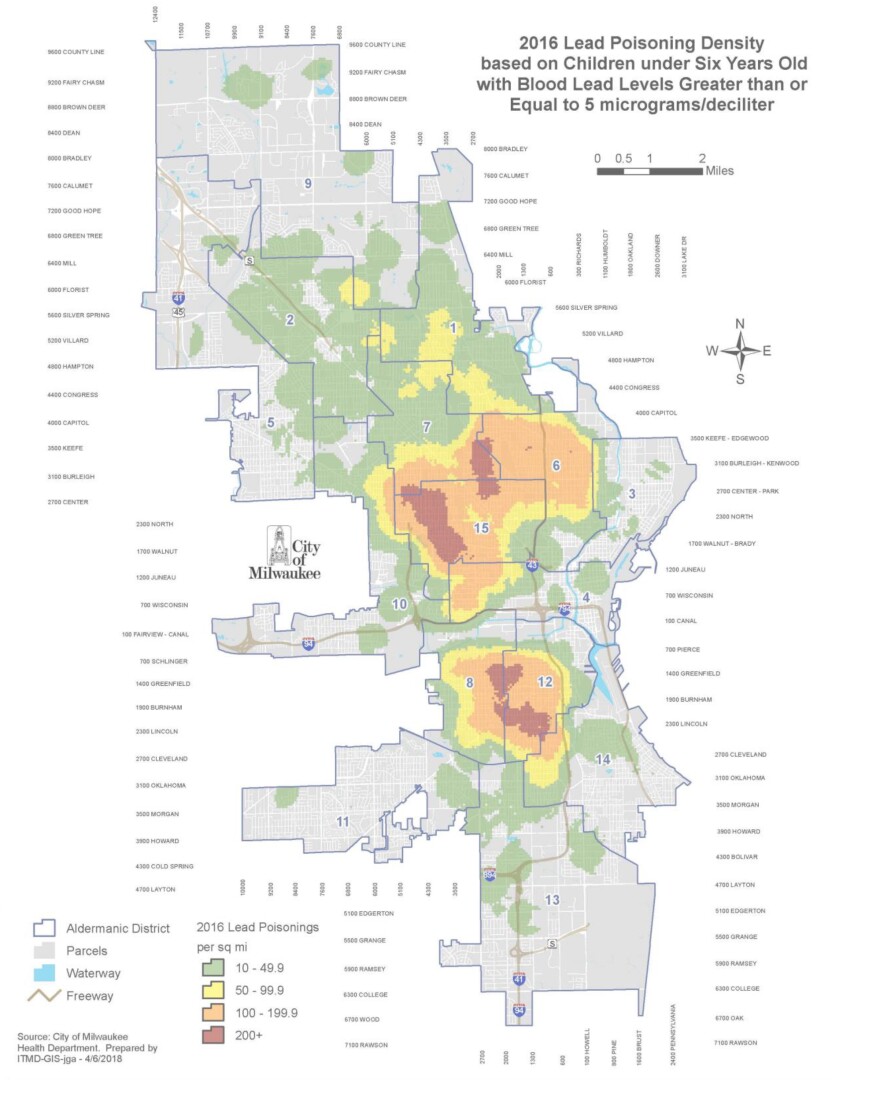Long before Bevan Baker resigned as public health commissioner in January, the agency said it was taking appropriate steps to educate families how to protect themselves from lead in paint, soil and water. While the city of Milwaukee posted information on its website, placed ads on buses, and mailed leaflets with water bills, some community groups worried word wasn’t getting out to families. So, people stepped forward to inform people in person.
Information Station
That’s what happened at All Saints Family Care Center on West Villard Avenue this summer. Several community organizations gathered to inform families about lead risks and provided actionable steps to avoid lead problems. Tips included how to get their children tested for lead and how to properly install a filter on a faucet.
After grabbing all the information she could find at the event, Betty Pryor realized lead is even more complicated than she realized. Pryor’s home of 45 years is among 70,000-plus households whose drinking water is delivered through old lead pipes. Children figure prominently in Pryor’s life and her family home, as her grandchildren and great-grandchildren spend time there.

“I’m going to have the window sills checked, I was thinking about painting, so this will help,” she says. “Also, we had some remodeling done a number of years ago and it might even be in the soil around our house.”

Dr. Veneesha McKinney-Whitson practices family medicine at All Saints Family Care Center. Its physicians routinely check the lead levels of children starting at age 1. McKinney-Whitson says she hopes to increase the medical center's lead education.
“It comes down to really educating [people], which we can’t always do a lot of in the room or during an office visit,” McKinney-Whitson says.
Delivering Info
Four miles to the south, a 16-week-long lead education program has been underway in the Amani neighborhood. It’s one of the areas of Milwaukee with the greatest concentration of lead service lines. Twenty-five percent of young children tested for lead were found to have high levels.

This project screams collaboration: Milwaukee’s Hunger Task Force used United States Department of Agriculture grant money and worked with the Dominican Center, a trusted group in the neighborhood that recruited Amani residents who were trained to knock on doors and share information about lead.
Orean Harper has visited twice with Bobbi Davis, who lives off Locust Street. Davis raised her son in this house, now she’s raising her grandchildren.
Davis felt she already knew plenty about lead “because I watch the TV a lot and read up on social media, but then when they came out, it gets serious here. They bring out a lot of information that you don’t know.”
Richard Diaz, who works for the Dominican Center, installed a water filter for Davis.

“We’ve probably given out close to 250 filters. Still, so much work to be done,” Diaz says. “We just connected with some students from UW-Madison that are going to be donating some funds to us to purchase filters."
Harper says she and her colleagues are making a difference in their neighborhood. “Because you know how word travels – she tells somebody else, and they tell somebody else,” she says beaming with pride. “That lets us know our work is going good and it’s effective.”
One more week of door-knocking remains, but the team is already close to doubling its outreach goal.
But That's Not All
Other community groups are doing their share of canvassing, but also want to affect public policy.

Robert Miranda, spokesperson for the Freshwater For Life Action Coalition, has persistently asserted city leaders are diminishing the danger posed by lead in water, by pointing to lead paint as the primary culprit of contamination.
Additional groups have joined Miranda to form the Get The Lead Out Coalition.
Miranda says they have compiled data from local state and federal sources, mapping what he calls a strong correlation between elevated lead levels in children to construction projects in Milwaukee.
“Now, we are able to challenge the government’s attempt to try to sway the public into thinking that things are under control, things are improving, and we need to move on,” he says.
During Mayor Barrett’s 2019 budget address this week he stated, “My budget adds new positions to the Childhood Lead Poisoning Prevention Program. This coincides with a renewed commitment to all aspects of lead safety.”
Robert Miranda plans to state his case at a community presentation this weekend.
Have an environmental question you'd like WUWM's Susan Bence to investigate? Submit below.
_






